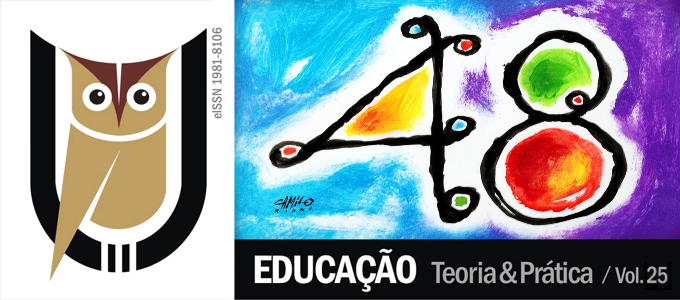The influence of social representations in the construction of teacher professional identity
DOI:
https://doi.org/10.18675/1981-8106.vol25.n48.p19-36Keywords:
Professional Identity, Social Representations, Teacher.Abstract
This study of how teachers’ personal and collective identities are constructed was undertaken with a view to delineating the uniqueness of different groups of teachers and defining the professional and social significance of being a teacher. This study aims to identify the social representations about teacher and its influence on the construction of professional identity, in a case study from the Institute of Medical Biochemistry, UFRJ. A total of 115 teachers (Higher Education and Basic Education) participated. In the context observed, there seems to be a polarization of representations of teacher among teachers of different grade levels. Position teachers of Higher Education and Basic Education, and unrecognizable on opposite poles causing the many communication barriers between them verified. We discuss here the professional implication of assumed identity with institutional circumstance that requires the kinds of relationships and actions that can overcome the obstacles faced in teaching practice.Downloads
Additional Files
Published
How to Cite
Issue
Section
License
Authors who publish in this journal agree to the following terms:
a) Authors assign copyright to the journal, with the work simultaneously licensed under the Creative Commons Attribution License that allows sharing of the work with acknowledgment of authorship and publication in this journal.
b) The policy adopted by the Editorial Committee is to assign copyright only after a period of 30 months from the date of publication of the article. After this time, authors interested in publishing the same text in another work must send a letter to the Editorial Committee requesting the release of the assignment of copyright and wait for a response.
c) This journal provides public access to all its content, since this allows greater visibility and reach of published articles and reviews. For more information on this approach, visit the Public Knowledge Project, a project that developed this system to improve the academic and public quality of research, by distributing OJS as well as other software to support the public access publication system to academic sources. The names and email addresses on this website will be used exclusively for the purposes of the journal and will not be available for other purposes. This journal provides open any other party  This work is licensed under a Creative Commons License
This work is licensed under a Creative Commons License











